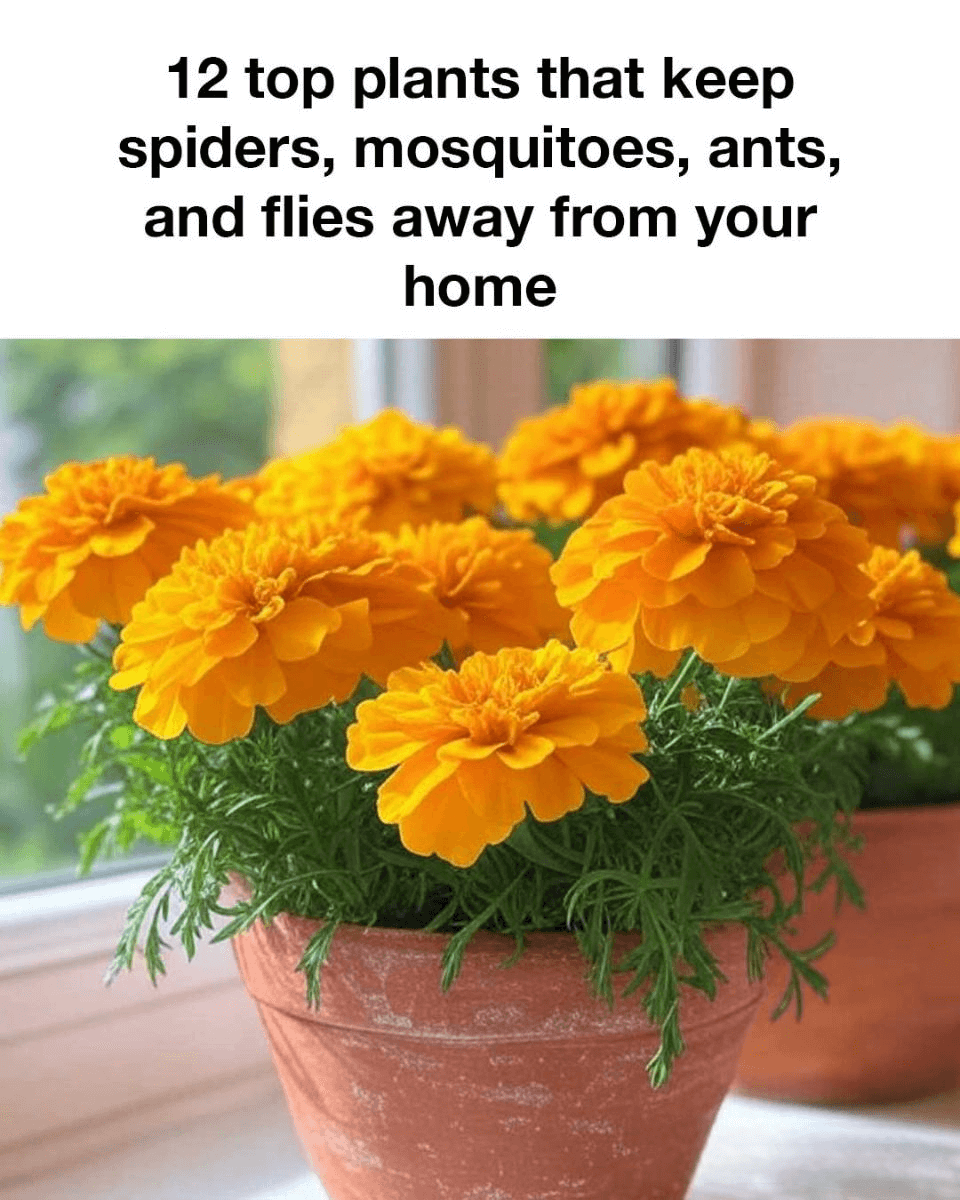In recent years, more people have started turning to natural alternatives for managing pests, especially as awareness grows about the potential health and environmental hazards linked to chemical insecticides. One of the most effective and eco-friendly options is using specific plants to ward off common household insects like spiders, mosquitoes, ants, and flies. By carefully placing certain plants around your living spaces and garden, you can establish a natural defense system that helps keep bugs away without resorting to harsh chemicals.
Why Use Plants for Natural Pest Control?
Utilizing plants to deter pests comes with a variety of advantages. For starters, it significantly cuts down the need for synthetic pesticides, which may harm humans and beneficial insects alike. Many of these plants also bring beauty and fragrance to your surroundings, providing dual benefits—both decorative and functional. On top of that, these pest-repelling plants tend to be low-maintenance and easy to grow, making them a convenient solution for any homeowner.
How Plants Help Deter Insects
Different plants repel pests through a range of mechanisms. Some give off strong aromas that insects find off-putting, while others produce oils or chemicals that are irritating or toxic to bugs. By understanding what each plant offers, you can place them strategically to fend off specific pests and make your home more pleasant to live in.
Choosing the Right Plants for Your Environment
Before selecting pest-repelling plants, take a few things into account: which pests you want to manage, your local climate, soil conditions, and how much care the plants require. It’s essential to choose plants that are both effective against the bugs you’re targeting and suitable for your particular environment. Placement is also key—plants should be located in spots where they’ll have the most impact.
1. Lavender: Keeps Flies and Mosquitoes at Bay
Famous for its soothing fragrance, lavender is also a potent natural insect repellent. Its essential oils contain linalool and linalyl acetate, both known to drive away mosquitoes and flies. Planting lavender near entrances or in outdoor beds helps create a scented shield against these pests.
2. Peppermint: Natural Enemy of Spiders and Ants
Peppermint isn’t just refreshing—it’s also highly effective at repelling ants and spiders. The powerful menthol aroma disrupts these pests’ scent trails. You can grow peppermint in containers or directly in the ground, and even use peppermint oil mixed with water as a spray to target problem areas.
3. Marigolds: Vibrant Flowers That Ward Off Flies and Mosquitoes
Marigolds are more than just eye-catching—they also contain pyrethrum, a natural insecticide that keeps mosquitoes and flies at bay. Add them to your garden’s borders or plant them in pots for added color and pest protection.
4. Basil: A Kitchen Favorite That Mosquitoes Hate
Beyond its use in cooking, basil also repels mosquitoes thanks to compounds like eugenol in its oils. Place basil plants near patios or entryways to combine culinary usefulness with insect protection.
5. Rosemary: A Woody Herb That Fends Off Insects
This hardy herb has a strong scent that mosquitoes and flies dislike. Rosemary’s oils contain cineole and camphor, which are natural insect deterrents. It works well as a potted plant or even trimmed into hedges in your yard.
6. Lemongrass: A Strong Citrus Aroma to Keep Mosquitoes Away
Lemongrass is widely known for containing citronella oil, a powerful ingredient in many mosquito-repelling products. Its lemony scent forms a natural shield against these pests. Grow it in sunny areas in pots or garden beds for best results.
7. Citronella: The Classic Mosquito Repelling Plant
Often found in natural insect repellent products, citronella has a distinctive lemon scent that’s very effective in deterring mosquitoes. You can grow it in containers or flower beds and even use the oil in candles and sprays for extra protection.
8. Eucalyptus: Natural Defense Against Mosquitoes and Flies
Eucalyptus trees produce a sharp scent due to eucalyptol in their oils, which is very effective against both mosquitoes and flies. Use eucalyptus sprigs indoors or plant the tree outdoors where it has space to grow.
9. Chrysanthemums: Pretty Flowers That Fight Off Flies and Ants
Chrysanthemums not only brighten up any space but also contain pyrethrins, which are toxic to a range of insects including ants and flies. Plant them in flower beds or display them in vases around your home for both color and pest control.
10. Catnip: Surprisingly Powerful Against Flies and Mosquitoes
Most well-known for sending cats into a frenzy, catnip also has strong insect-repelling properties. It contains nepetalactone, which studies show can be more effective than DEET in keeping mosquitoes away. It’s best grown in pots or controlled garden spots, as it can spread rapidly.
11. Pennyroyal: A Strong Mint Scent That Repels Insects
Pennyroyal, another member of the mint family, produces a powerful fragrance that ants and mosquitoes avoid. Grow it in containers to help manage its spread, and place pots in outdoor seating areas to keep bugs at bay.
12. Geraniums: Floral Fragrance That Mosquitoes Dislike
Lemon-scented geraniums are especially useful for deterring mosquitoes. Their essential oils contain compounds that repel bugs effectively. These flowers are beautiful additions to pots or garden beds and offer natural insect control.
Tips for Using Pest-Repelling Plants Effectively
For the best results, place these plants near doors, windows, patios, and other entry points where pests are likely to come in. Using potted versions gives you flexibility to move them where needed. Try combining a few different varieties to boost their overall effectiveness and coverage.
Final Thoughts: Embrace Nature for a Pest-Free Living Space
Incorporating insect-repelling plants into your home and garden is a smart and sustainable way to create a more comfortable environment. Not only do these plants help minimize the need for chemical sprays, but they also enhance your space with color, scent, and natural charm. By choosing the right plants and placing them wisely, you can enjoy a bug-free home the natural way.
